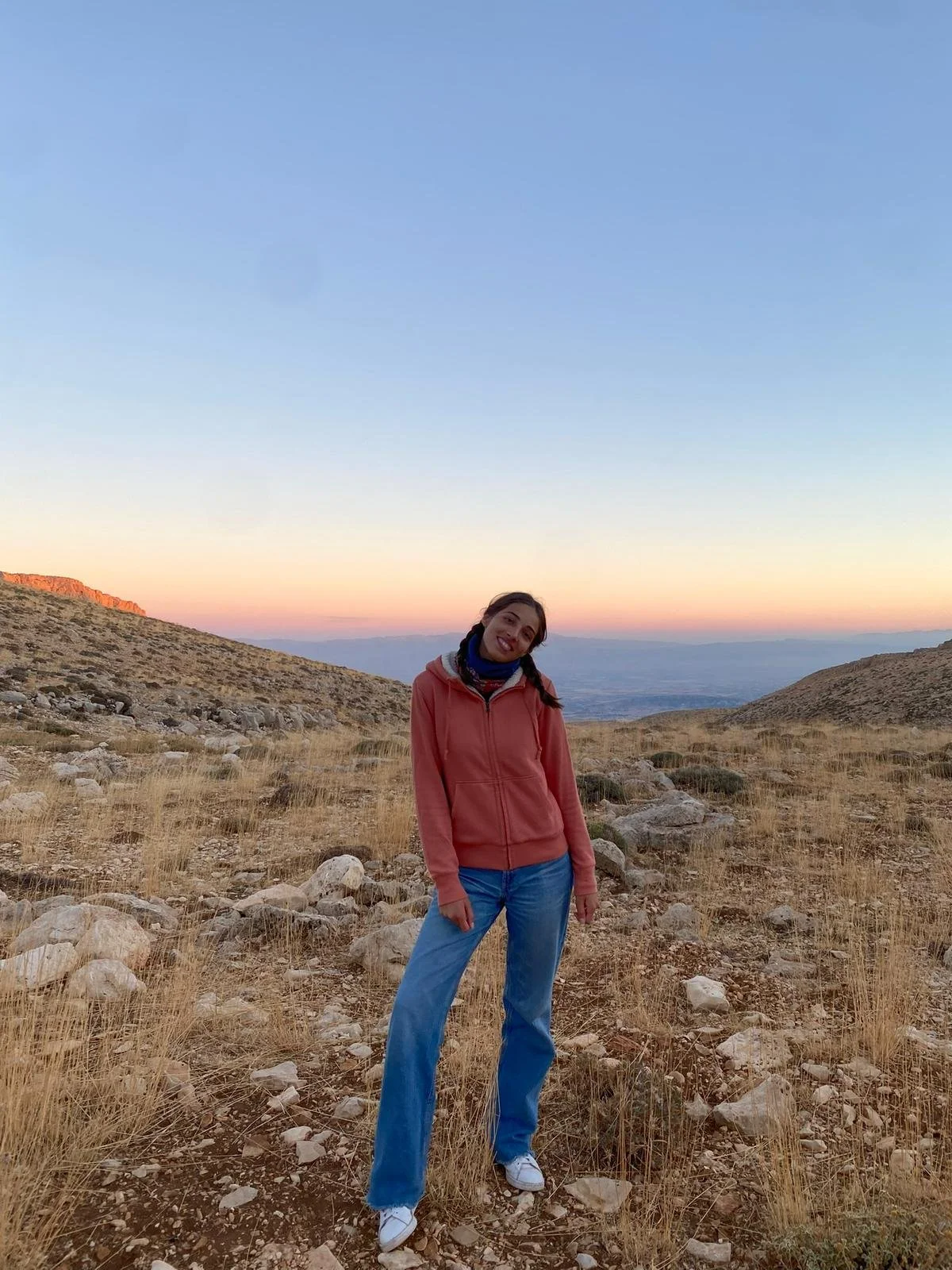Sienna, 18, Beirut
Can you tell us about your family’s connection to Ehden and Sghata?
My family is from Ehden and Sghata, so we’ve always had this strong tie to the mountains. That sense of home became really important when the war started.
What was it like living through that time?
Honestly, at first it just felt annoying. But then it turned into stress—mostly about Beirut. We were constantly moving houses. I grew up in Badaro, but we had to leave. Balancing school while getting used to a new house was difficult, especially since it never really felt like home.
How did school fit into all this?
School was actually a relief. The teachers adjusted the schedule—we finished earlier in the day because most of the bombings happened in the afternoon. The atmosphere there helped me forget, at least for a little while, that things were so tense in Beirut.
What about your friends and community?
Some of my friends had bombs fall right next to their houses. But somehow, everyone kept going to school no matter what. It was a priority for all of us, even when everything else was falling apart. People only held on to the most important things.
Is there a particular memory that has stayed with you?
Yes. During the Nasrallah bombing, I was still in Badaro. I had just come back when suddenly everything escalated. Within twenty minutes we packed our bags and left. Up in the mountains, we could see the bombs hitting—seven houses destroyed in different places. Watching from far away was surreal.
What gives you hope when you think back on that time?
The best thing is that, even after everything, my closest friends stayed. We’re still connected, still part of the same school community. It’s amazing that even with all the chaos, families chose to stay for their kids. That says a lot about resilience.
